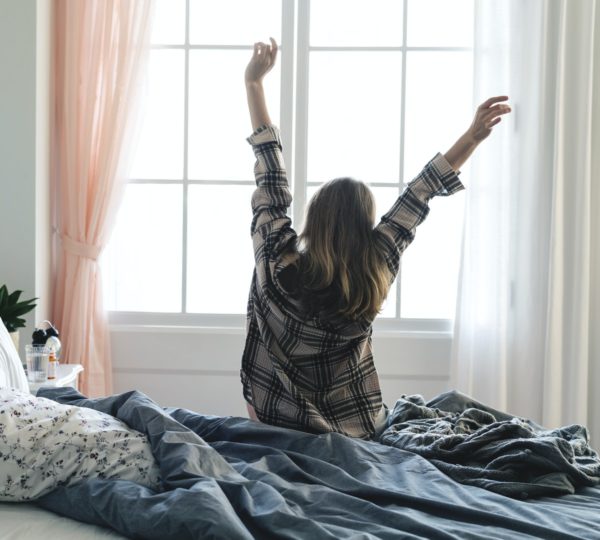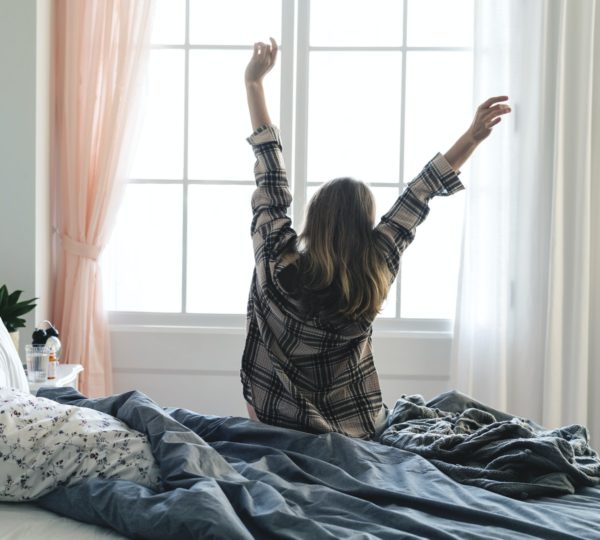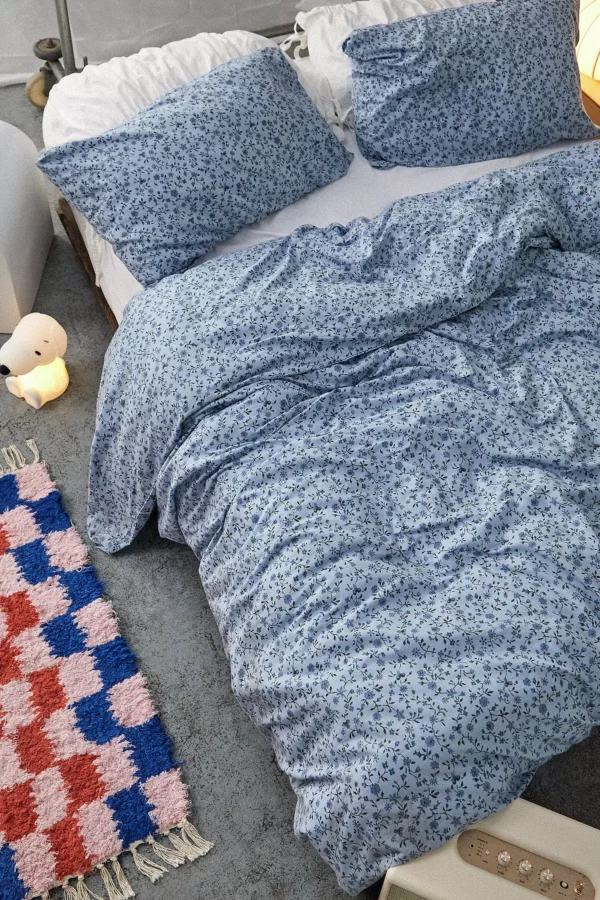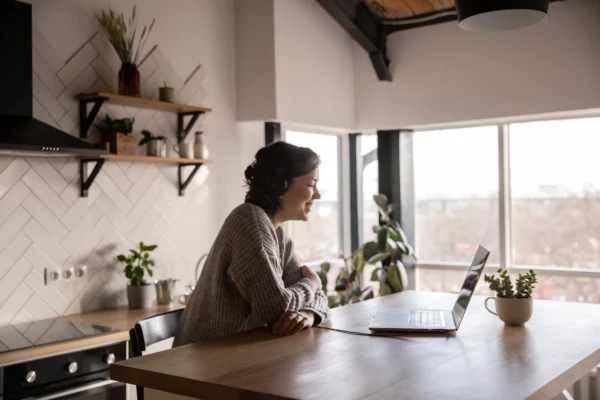
8 Ways to Get a Better Night’s Sleep
From simply putting down your phone to reduce the effect of blue light to cutting back on coffee, we look at 8 ways to get a better night’s sleep.

It’s conventional wisdom that we sleep less than our ancestors, although that may not be true. One study of hunter-gatherer societies found they sleep on average 5.7 to 7.1 hours a night, about the same as people in modern societies.
We all have sleepless nights from time to time and as modern life gets more stressful and demanding, sleeplessness and insomnia become more prevalent. There are no quick and easy fixes, but by making a few simple changes to your lifestyle and routine, you could get a few more hours every night and see massive improvements in your mental and physical health.
1. Put Down Your Phone.
Your smartphone is a distraction, a stimulant. It keeps you awake and focused, and if you’re checking your friend’s holiday snaps on Facebook, playing slot games, or watching YouTube, it means your mind is being stimulated when it should be relaxing.
Millions of us keep our phones by the side of the bed. It’s the last thing we see before sleep and the first thing we reach for when we wake up. And like all bad habits, it’s one that we refuse to admit to, insisting that it somehow helps us to fall asleep, as if staring at a blue screen and sharing emojis with friends is akin to a sedative.
It’s not helping, you’re just accustomed to using it and can’t remember what it’s like to sleep without it.
Put your phone on silent before you go to bed and don’t cling to it while you’re trying to sleep.
2. Avoid Alcohol.
Alcohol might help you to fall asleep in the short term, but it has the opposite effect in the long term. It leads to a short and restless sleep and also makes you dehydrated, potentially leading to several nightly toilet trips.
That glass of wine before bed is likely doing more harm than good, so give it a miss and enjoy some hot chocolate instead.
3. Avoid Caffeine.
It comes without saying. We love caffeine. But if you’re having trouble sleeping, it’s important to reduce, if not eliminate, caffeine in your diet.
The majority of UK adults consume daily cups of coffee and/or tea. Without it we may feel like we can’t properly wake up without our morning coffee and that we probably need an afternoon Americano to perk us up. If that sounds like you, and you’ve adopted those habits for many years, there’s a good chance that you’re addicted to caffeine.
If you’re having trouble sleeping, try to avoid drinking any coffee, tea, or caffeinated soft drinks several hours before you go to bed. If you can’t give it up entirely, at least try to stay away from caffeine within four to six hours of bedtime; half of the caffeine you take in at 7 pm is still in your body at 11.
You can also use your habit to help you sleep. If you go several hours without a dose of caffeine, you’ll probably feel very lethargic and tired. Your body is craving the stimulant it has become so accustomed to. If you deprive it of that stimulant throughout the late afternoon and evening, you’ll be tired and ready to sleep as soon as bedtime rolls around.
4. Read Something.
One of the excuses we tell ourselves when using our phones before bed is that reading articles from a glowing blue screen is the same as reading a book, and everyone knows that reading a book can help you to wind down.
The latter is certainly true, as it’ll tire your eyes after a long day. But a book is not the same as a phone. A book is paper and text. It’s simple and devoid of distractions. A phone is a glaring blue light that constantly pings with notifications and is always just a tap, pinch, or scroll away from distracting you with applications, conversations, and video.
What you read isn’t important. It can be a magazine, novel, non-fiction book, or even a phrasebook in another language—it’s the act of reading and engaging your attention that makes the difference.
5. Take a Bath.
Last but not least, try taking a bath before you go to bed. It relaxes you down and keeps you away from distractions, but it also raises and then lowers your body temperature, signalling to your body that it’s time to rest.
6. Eat Lightly.
The idea of falling into a tryptophan coma after a big Thanksgiving turkey dinner is a cultural touchstone, but in reality, a heavy meal just before bed isn’t good for your sleep–or your health. Tryptophan is a building block of the sleep-related chemical serotonin, but the studies are conflicting as to whether the amount you get in food is enough to have any effect on sleep. What’s much more convincing is what we know about when, what, and how much to eat. Eat lightly, if at all, before bed, and avoid foods that might cause stomach trouble–like anything that’s spicy, fatty, or fried.
7. Set a Schedule.
Your body needs to become habituated to going to bed and getting up at set times, whether it’s a weekday or weekend. It sounds like tough love, but if you force yourself to get up, say, at 6:30 am for a few days, regardless of how you slept the night before, and then to go to bed promptly at 10:30 pm, it can help you re-set your sleep pattern. It might be painful for a few days, but it will likely be worth it.
8. Establish a rhythm.
Along with establishing regular, consistent bedtimes and wake-up times, set up a soothing bedtime ritual. If you’ve ever put a baby to sleep, you know how important these routines are in settling a wakeful brain into sleep mode. It works the same way for adults. Plan a relaxing routine for the 30-60 minutes before bed. This won’t be the same for everyone, of course. For one person, it might be 15 minutes of meditation followed by a cup of chamomile tea. Someone else might like a warm bubble bath accompanied by calming music.













































